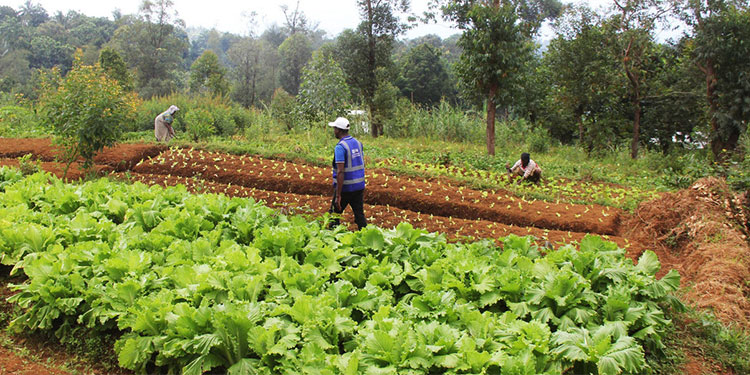
By 2025 EOA-I’s main aim towards the national Agriculture systems is to prevail the Ecological Organic Agriculture (EOA), with the motive to reinforce food security, productivity in agriculture, sustainable development and market access in Africa. Since 2012 EOA-I has been in application and is enforced presently in countries like Ethiopia, Kenya, Rwanda, Tanzania, Uganda, Benin, Nigeria, Mali and Senegal.
Partnership and Networking, Research, training and extension, Value chain and market development, Information and communication, Institutional capacity development, Policy and programme development are EOA -I’s key pillars implemented into interconnected colonnades which complements one another by that specialize in varied aspects ecological organic farming accompanying the aim to ultimately permeating within the entire African Continent. This may be achieved jointly by the great Africa Agriculture Development Programme (CAADP) alongside New Partnership for Africa’s Development (NEPAD).
With the existence of Covid-19, which results in a better number of death in infected people with weaker immunity and underlying illnesses. It is certain that there are often a lift in immunity with the consumption of healthy food.
Prof. Charles Ssekyewa Said “A citizenry food consumption should be healthy and safe. Sadly many peoples food consumption doesn’t not enough or lacks nutrients or is unsafe. The produced food when handled properly at the time of production, post-harvest and processing will end in being nutritious and safe. Similarly over-processed are often considered safe, but not nutritious. On the contrary food produced with the appliance of synthetic chemicals and fertilisers maybe nutritious but not safe.”
The aim is to make sure that these farmers are food and nutritionally secure, which they will sell the surplus to communities around, while spreading the practice of consumption of safe and nutritious food.
CEO Rwanda Organic Agricultural Movement (ROAM) said, food availability means to possess access to sufficient, top quality, diverse and well-distributed produce to all or any people – consistently. The food should be affordable and available to all or any people across various demographics and backgrounds. Consistent availability of safe, affordable and nutritious food for all may be a good way to reinforce a healthy population.
ROAM’s mission is to develop and promote the Ecological Organic Agriculture (EOA) as a farming method, which sustains the health of soils, ecosystems and other people. This is often through increasing consumer awareness, empowering EOA value chain actors and strengthening organic markets. It is also through networking and partnerships with other stakeholders, lobbying and advocating for supportive legal and policy frameworks. All activities of ROAM aim at ensuring that the Rwandese have access to enough and safe food, which is free from chemicals and GMOs. Organic farming enhances food security because food is produced in high volumes, is nutritious and safe. Smallholder farmers using organic farming systems have huge potential to enhance global food security.
Conventional farmers got to switch to organic farming because it may be a sure way of manufacturing safe food not just for their own families, but also for the overall population.
EOA-I Regional Coordinator – Eastern Africa Regional Secretariat mentioned, EOA-I endeavours to finish hunger through sustainable production, sale and consumption of healthy food. This is often in tandem with this year’s World Food Day theme of to “Grow, nourish and sustain. Together”.
Ecological organic production ensures and sustains local food security, sovereignty and production. EOA-I also supports nutrition-sensitive and biodiversity-smart food production for improved dietary health and protection of natural resources.
EOA-I’s desire is to supply healthy and affordable diets for everybody while conserving the biodiversity and natural resources by handling challenges like global climate change . Which is feasible by boosting biodiversity conservation (such as native flora and fauna), soil fertility, less use within the input of synthetic chemical and production methods adopted to the locality.
Studies have shown that EOA-I improves lives for little farmer families, by increasing their incomes at household level. It further involves employment of global climate change adoptive technologies. Therefore, it mitigates the risks of failure. This way, farmers are assured of a harvest, even when their crops grow under harsh weather. EOA-I encourages use of indigenous seeds, which are adoptive to the local environment, which may be a sure way of ensuring good harvest for farmers.
EOA-I protects the environment, promotes biodiversity and utilises locally available resources. It produces healthy and nutritious foods. The marketplace for these foods is growing both locally, regionally and internationally as more people are learning the advantages of feeding on safe, nutritious food, which is organically produced. I therefore urge the regional and national governments to support this growing sector for production of safe and healthy foods for his or her citizens.
